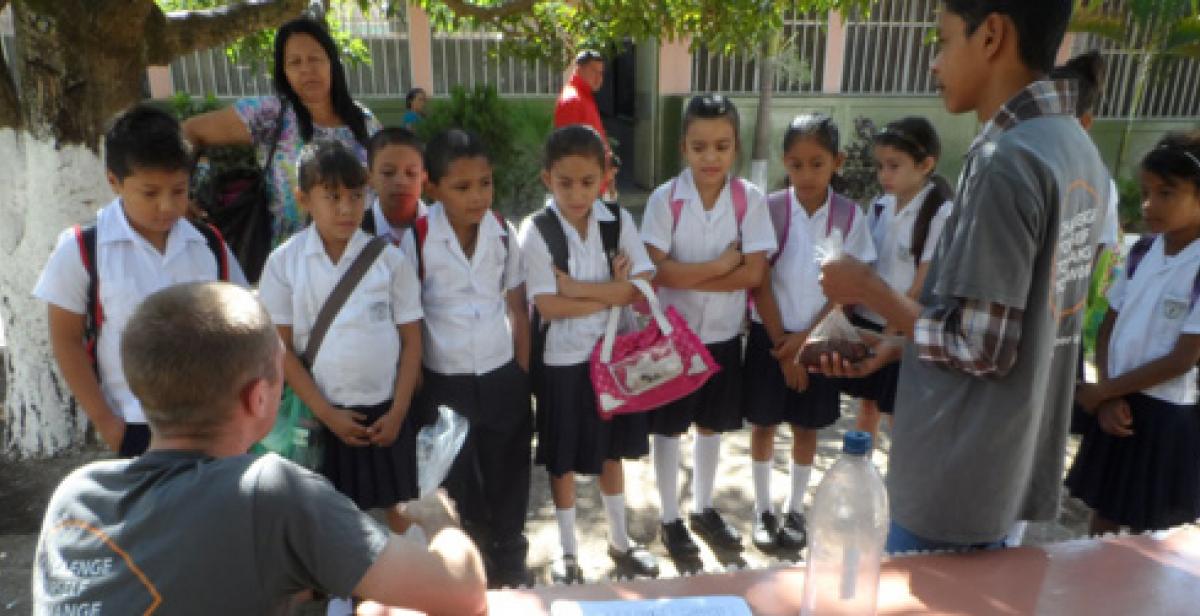At the first drug prevention fair that we ran at a school in Catacamas, national volunteer Emilia asked the children, aged between 5 and 10, to draw pictures of any drugs and alcohol that they know. We watched incredulously as the kids set to work without hesitation, drawing an array of different drugs and many including diagrams of how you take them.
At first glance this could seem like the product of a good drug education programme in schools, but unfortunately the reality is that most of these kids have learnt through experience. One tiny boy particularly caught my attention as he had instinctively written Jose, Carlos and Emanuel next to the different substances – names of his family and friends who take them. Throughout the fairs we´ve heard the same kind of comments over and over again - ´my grandma smokes marijuana´, ´my friend in my class drinks guara (a local alcoholic drink)´. Working with these kids has shown us exactly why we´re here and why Progressio is supporting CEREPA´s drug prevention programme.
We´ve been welcomed with open arms to the schools that we´ve visited. It´s an issue that many teachers are passionate about but they don´t necessarily have the resources or structure to implement a prevention programme. The state schools in Honduras are squeezed for resources and infrastructure- we´ve often found classes of 45 kids in a tiny classroom with one teacher, there are classes with 3 different grades being taught by the same teacher and so that there is enough space, schools have half the children come in the morning for lessons and the other half in the afternoon, due to a lack of classrooms and teachers.
Whilst the drug prevention programme by CEREPA aims to directly teach children about the dangers of getting involved in drugs, it also takes a side approach, which looks at why young people get involved in drugs in the first place. Many times it comes from their home life- examples set by relatives, a lack of parental supervision due to the parents being out working, or boredom due to not having the resources to go to school. Our group is working to try and support and encourage these children to stay in school and go to high school, which is where many students drop out. We are running workshops to help these children see that they can achieve their goals – hopefully to inspire them to keep going even when times are hard. CEREPA runs a scholarship programme that we are supporting as well, which helps families most in need to keep their children in school and hopefully on the right track to achieve what they want out of life.
All the volunteers bring such energy and life to the programme that it´s easy to see the impression left on the kids. The national volunteers bring heaps of experience and local knowledge, and the UK volunteers are a refreshing change for the children, who listen attentively to the strange foreigners who have somehow found their way to a small town in Olancho.
Above all, I think that aside from the amazing work that the team are doing directly through the programme and workshops, much of our project is about inspiration - simply through us being there. Giving the children inspiration that even through adversity they can grow into incredible young people like the Progressio volunteers, and reminding them that they haven´t been forgotten about, that someone fights their corner and that there is hope.
Written by ICS team leader Ellie Wason



